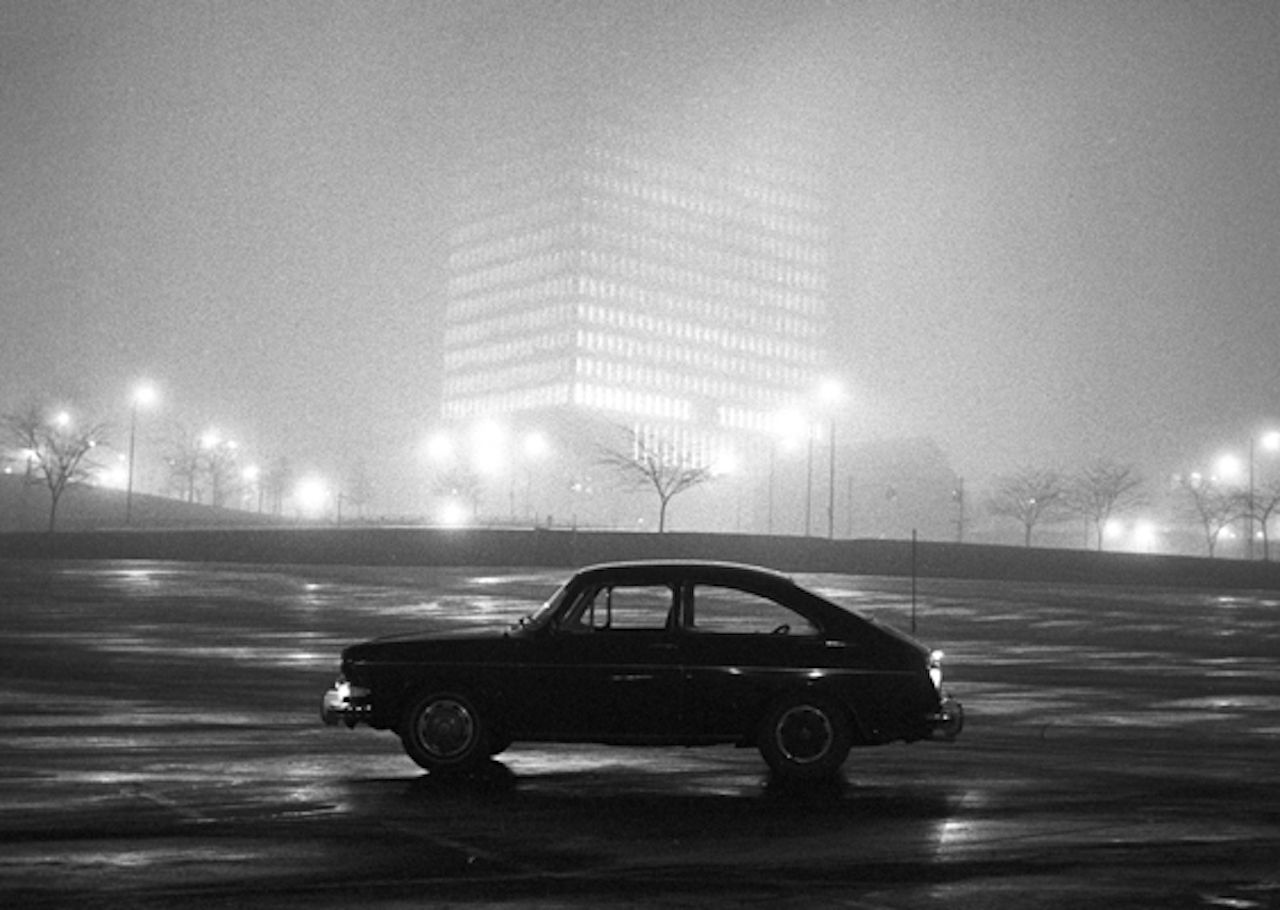
No. 658: What is a housing crisis?
📅 Today, we download last night's council meeting. Davis talks about the zoning bills, and Megan, the rest.
Good afternoon, everyone.
Back in 2014, when I lived in the Bay Area, I remember touring a 500-something-square-foot apartment in the heart of the city priced at around $2,000. It was basically a shoebox, and yet almost twenty people showed up to inspect it. This was my first encounter with the “housing crisis.”
But what exactly is the housing crisis? We hear about it a lot. It’s even got a couple of different pseudonyms it sometimes masquerades as: the homelessness crisis, the chronic housing affordability crisis, and the pandemic rental crisis, among others.
“There is no single economic definition of a housing crisis,” admits New York based finance expert John Dunham. “Depending on who you are speaking with, it could be a bubble in prices, a lack of supply, a surge in demand, or basically anything that puts the housing market out of equilibrium.” Does that clarify things?
Joking aside, it’s self-evident to anyone who’s tried to rent or buy a house in Nashville in the past few years that prices are high. There are a number of explanations for this: lack of supply, the rise of one-person households, immigration into the city, rising property taxes, and probably some others that I’m neglecting.
Of those issues, the only one the city can directly affect is the property tax rate; indirectly, it can increase the supply of housing available.
On the heels of Save Nashville Now’s effort to repeal Mayor John Cooper’s 34% property tax increase, Metro passed a rule change increasing the number of signatures required for a referendum to make it on the ballot, the only likely path for such an initiative given the slant of Metro.
Presently, there is a bill in the General Assembly which would require local governments to hold a referendum in order to increase property tax rates above a given threshold. That’s about all we’re likely to get on that front for the foreseeable future.
To indirectly modulate the supply, local governments can loosen zoning laws. And to this end, Councilmember Quin Evans Segall led a number of other council members last night in proposing changes to Nashville’s zoning code in order to open up space for “missing middle housing”—duplexes, quadplexes, that kind of thing—in areas where such developments are restricted.
The eight bills and one resolution are collected on a website for the initiative named Nashville’s Essential Structure for Togetherness (NEST), a candidate for the worst acronym of all time. As Dunham mentions, it depends on who you talk to when defining what a housing crisis is, and in this instance, I think the accurate term for Metro Council’s view of the so-called crisis in Nashville is a missing middle housing crisis.
The proposed legislation is sweeping in that it seeks to impose changes to the zoning code across the whole county—focusing in particular on the urban services district. For this reason, it received fierce pushback from council members who didn’t think it aligned with their constituents’ wants or made sour the deal property owners made when purchasing their home. In a rare turn of events, Segall motioned to defer the first reading of the bills—which is just an agreement that the council will hear the bill—until April.
My impression was that Segall and company were trying to rush the obviously contentious legislation through (we’re in a crisis, after all, remember) without ensuring that council members and constituents understood the impact of the proposed changes.
Admittedly, I have a hard time wrangling with proposals like this. On the one hand, it is the only solution to upward pressure on housing prices, aside from capping or reducing property taxes— something I realistically do not see happening, except through the state.
On the other hand, the advocates for such policies are the most fanatical, progressive zealots you will ever encounter. Their plans are replete with language about single-family zoning being rooted in “racism” and the suburbs’ legacy of “white supremacy.”
I try to cautiously toe the line of accepting reality—this city is exploding and would benefit from allowing for a greater variety of housing developments—and empowering the activists who hold a dim view of me and those like me to take the reins.
So, let me spitball here for a second and try to arrive at a compromise that might actually solve the problem and win over some skeptics.
Increased density correlates with increases in violent crime. To that end, I’d propose that we marry such zoning reforms to assurances that law enforcement will do its job, and that the district attorney will prosecute violent criminals to the full extent of the law.
Unfortunately, the council—specifically, the coalition behind NEST—does not give me any faith that law enforcement will receive the necessary support needed to shore up trust with the general public. Even still, Nashville has the unique opportunity to set an example for other cities in the country by marrying zoning reform to proactive law enforcement.
Just as the obvious solution to upward pressure on housing prices is to build more, the obvious answer to violent crime is to lock up offenders and keep them in jail. I’m at least willing to concede the former, now will my critics concede the latter?
Onward.

✸ LAST NIGHT AT METRO COUNCIL, (should be) SPONSORED BY REDBULL
From Megan Podsiedlik
Reminiscent of the meetings of old, the council did not adjourn until midnight last night, largely due to the two-hour, pre-budget public hearing period and the fifteen items council members pulled off the consent calendar to discuss.
A cast of characters both new and recurring came forward to speak. Several artists and board members asked for investments in equitable arts funding. MNPS workers pled the council to fulfill school funding requests. And of course, activists and nonprofit affiliates showed up to advocate for community policing programs to eliminate the cycle of “cops, courts, and cages.”
O’CONNELL CONFOUNDS BIKE BRIGADE
“I am one of the bike people,” said Nashville Triathlon Club board member Chris Ashton, who showed up to advocate for “increased funding for sidewalks, bike lanes, greenways and non-driving kinds of infrastructure.” Ashton brought up the mayor’s proposed budget, which slashes the Vision Zero budget in half and cuts sidewalk funding from “$60 million to $10 million.” “I don’t understand this,” he said, echoing the confusion many of O’Connell’s most avid supporters feel.
Considering O’Connell ran on transit reform and strongly advocated for a more walkable, bikeable Nashville during his time in council, cutting the budgets of pivotal initiatives supporting that vision is a curious move. During January 30th’s media roundtable, the mayor did mention that he plans to announce the “reconstitution of the Bicycle Pedestrian Advisory Committee.” Perhaps we’ll understand his motives after WeGo and NDOT’s fiscal analysis concerning a transit referendum.
A LESSON IN EQUITY
Taking a different approach, Pastor Davie Tucker of District 6 offered some words of wisdom to the council during the public hearing: “Budgets are a direct representation of your stewardship of public funds…. Budgets expose your values. Budgets are moral documents. Budgets can also be the reflection of the influence of special interests juxtaposed against the common good.”
He went on to speak about equity, a topic that has recently taken center stage within Metro Government. “Many folk even now say that ‘if you want to achieve equity, we need more funding,’” said Tucker. “That is categorically false. Equity is not predicated on more money. Equity is predicated on two things: number one, acknowledging the inequities that exist. And number two, redistributing the funds you have to address those inequities. Don’t convolute the word.”
CHARTER SCHOOL RESENTMENT?
A very tired, somewhat confused, and mildly impatient council wrapped up their meeting with a final vote on a lease agreement between Metro and Cameron College Prep. Councilmember Russ Bradford stood in opposition to the agreement. “I think everyone understands where I stand on charter schools,” he said. “How they constantly underperform traditional zoned public schools.” He pointed to Cameron’s low score on “equity and other factors” before concluding, “I really don’t think we should be sending any more of our hard-earned tax dollars to a school that is not really performing any better than our zoned schools.”
Bill sponsor Councilmember Terry Vo then took the floor to defend her bill. “The lease was confirmed unanimously by the Metro Nashville school board,” said Vo. “And I do want to confirm that Cameron was named a level five, which is the highest rating in the TVAAS (Tennessee Value Added Assessment System)… for the past three years.”
The council approved the leasing agreement with 26 yeses, three noes from council members Russ Bradford, Delishia Porterfield, and Ginny Welsch, and one abstention by Zulfat Suara.
HEADLINES
Justin Jones criticized after run-in with staffer leads to her session-long suspension (TNJ) State Rep. Justin Jones, a Nashville Democrat who rose to national fame last year for being expelled from the Tennessee House following a gun protest in the chamber, is coming under heavy criticism from a fellow Black Democrat after his aide was suspended because of an interaction with the lawmaker.
Tennessee State Lawmakers Introduce Bill to Make Blocking a Highway a Class D Felony Offense (Star) Under current law, it is classified as a Class A misdemeanor when a defendant “intentionally, knowingly, or recklessly” obstructs a public highway, street, sidewalk, railway, waterway, elevator, aisle, or hallway. A Class A misdemeanor is punishable by a maximum term of imprisonment of 11 months, 29 days, a maximum fine of $2,500, or both, unless otherwise provided by statute.
Three charts to explain Tennessee’s budget (Lookout) To explain this year’s budget crunch, the Lookout has created three charts to better detail what is happening with the state’s spending and revenues.
DEVELOPMENT
- Whataburger to open in East Nashville amidst area expansion (NBJ)
- MDHA committee OKs Midtown tower proposal (Post)

THINGS TO DO
View our calendar for the week here and our weekly film rundown here.
📅 Visit our On The Radar list to find upcoming events around Nashville.
🎧 On Spotify: Pamphleteer's Picks, a playlist of our favorite bands in town this week.
👨🏻🌾 Check out our Nashville farmer's market guide.
TONIGHT
🎸 Katy Kirby @ The Blue Room, 8p, $25.88, Info
+ indie folk pop
🎻 Lunar New Year with the Nashville Symphony @ Schermerhorn Symphony Center, 7:30p, $29+, Info
🎙️ Drake with J. Cole @ Brigestone Arena, 8p, $115+, Info
🪕 Bluegrass & 2-4-1's Featuring Sheriff Scott & The Deputies @ Tennessee Brew Works, 6p, Free, Info
+ bluegrass 6-8pm and 2-for-1 craft beer specials all day
🪕 Bluegrass Night @ The American Legion Post 82, 7p, Free, Info

📰 Check out the full newsletter archive here.





YOU MAY ALSO LIKE
- 🇸🇻 President Nayib Bukele’s historic transformation of El Salvador (Read)
- 🤼 The Iron Claw is a Heartland epic. Of course it isn’t an Oscar contender. (Read)
- ☢️ A small Tennessee town's forgotten history as a nuclear leader (Read)
- 🤡 Metro Arts launches initiative to 'return land, money, and resources' to 'Indigenous, African, and Asian peoples' (Read)
- And check out our podcast, YouTube, and article archive for more.

